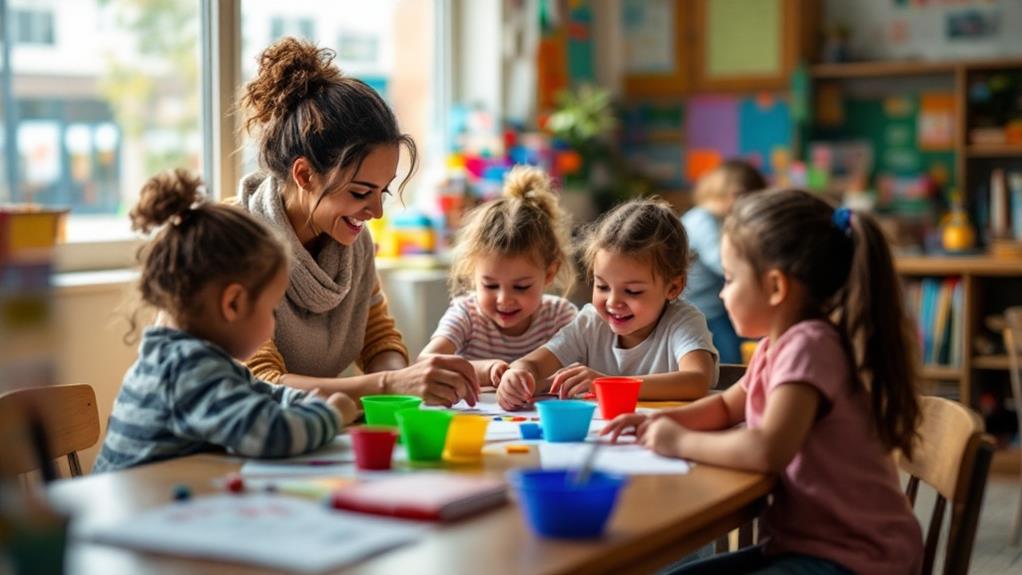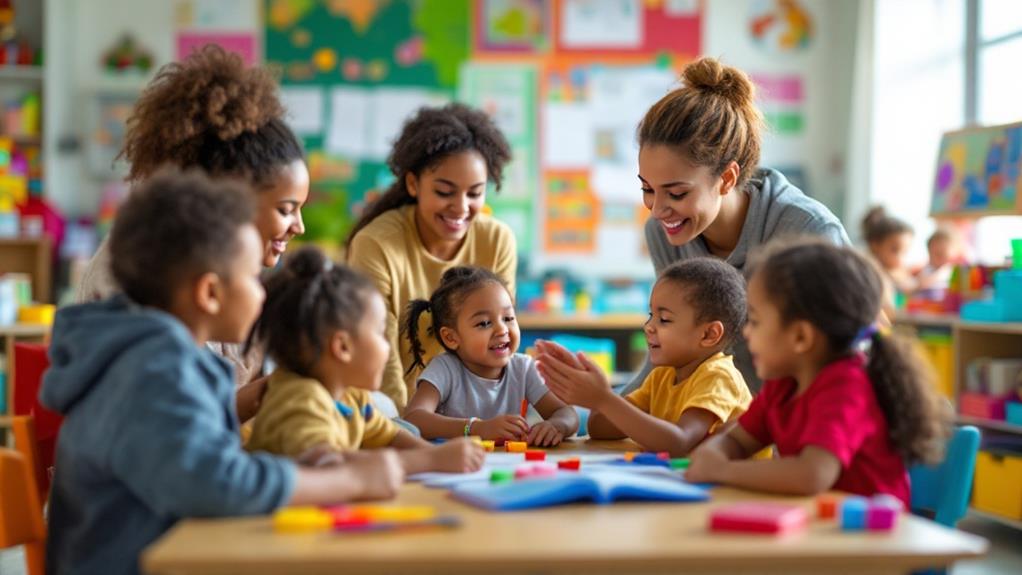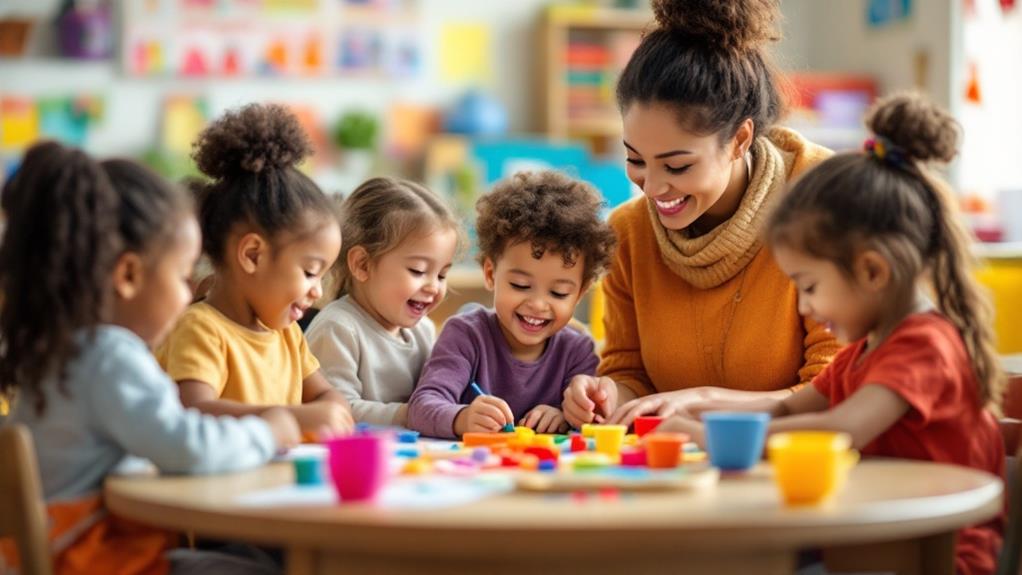ABA therapy prepares your child for success in local schools by focusing on key skills they'll need in their community. Through structured techniques, they gain self-regulation, helping them navigate emotions and challenges. Problem-solving abilities foster resilience, while social interaction training encourages effective communication with peers. Your child will learn essential independence, building confidence and a sense of accomplishment as they master tasks. By creating routines and collaborating with teachers, ABA guarantees a smooth shift into school life. With these crucial skills, your child can thrive in their educational journey and beyond. Discover even more about the positive impact of ABA therapy!
Essential Key Takeaways from ABA Therapy for Children in Local Schools
- ABA therapy builds self-regulation skills, helping children manage emotions and reactions, essential for a positive school environment.
- Problem-solving abilities developed through ABA foster resilience and independence, preparing children for academic challenges.
- Social interaction skills taught in ABA enhance communication, enabling effective peer engagement and relationship-building in school settings.
- Emotional control strategies learned in ABA improve focus and attention, crucial for academic success and participation in classroom activities.
- Establishing routines through ABA therapy provides stability, easing the transition to school and enhancing children's readiness to thrive in their community.
Understanding ABA Therapy

Understanding ABA therapy can feel overwhelming at first, but breaking it down makes it more approachable. At its core, Applied Behavior Analysis (ABA) is a scientific approach to understanding and improving behavior. You're not just working with techniques; you're engaging with a method that emphasizes positive reinforcement to help children learn essential skills.
Think of ABA as a toolbox. Each tool represents a different strategy or technique tailored to meet the unique needs of the child. You'll see how it focuses on small, manageable goals that build upon one another, making progress tangible and achievable. It's about observing behaviors, understanding what motivates children, and using that insight to encourage positive change.
As you dive deeper into ABA, you'll discover its emphasis on data collection and analysis. This structured approach allows you to track progress, ensuring that every child receives the support they need.
This isn't just about behavior modification; it's about fostering independence and confidence. By understanding ABA therapy, you're not just learning a method; you're joining a movement dedicated to empowering children to thrive in their communities, especially as they adapt into local schools in Aurora.
Key Skills Developed Through ABA
ABA therapy equips children with a variety of key skills that pave the way for their success in everyday life. One essential skill is self-regulation. Through structured activities, children learn to manage their emotions and reactions, which helps them navigate challenging situations with greater ease. This skill not only aids in school settings but also enriches their personal interactions.
Another important area is problem-solving. ABA encourages kids to approach tasks methodically, breaking them down into manageable steps. This approach builds resilience and confidence, enabling them to tackle new challenges both academically and socially.
Additionally, ABA focuses on promoting independence. Children learn to complete tasks on their own, from dressing themselves to managing basic chores. This independence fosters a sense of accomplishment and prepares them for the responsibilities of school life.
Social Interaction and Communication

Social interaction and communication are essential skills that help children build meaningful relationships and navigate their environments. Through ABA therapy, your child can learn how to engage with peers, initiate conversations, and express their thoughts and feelings effectively. These skills are vital not just for making friends but also for participating in group activities, which are common in local schools.
In therapy, your child will practice social scenarios that mirror real-life situations. They'll learn the nuances of body language, eye contact, and turn-taking—simple yet powerful tools for building connections. For instance, role-playing can help your child understand how to ask a friend to play or how to join a group discussion.
Moreover, ABA therapy emphasizes the importance of active listening. When your child learns to truly listen to others, they become more empathetic and responsive, fostering deeper relationships.
Self-Regulation and Emotional Control
Managing emotions can be challenging for children, especially when they face overwhelming situations. ABA therapy equips kids with essential self-regulation and emotional control skills, which are vital for thriving in school and their communities.
When you support your child through this therapeutic process, you'll notice significant improvements in their ability to handle emotions constructively.
Here are a few key benefits you might see:
- Increased awareness of emotions: Your child learns to identify their feelings and the feelings of others, fostering empathy.
- Coping strategies: They develop practical techniques to manage frustration or anxiety, making difficult moments easier to navigate.
- Improved focus and attention: With better emotional control, your child can concentrate on their schoolwork and participate in class activities more effectively.
Successful Transition to School

Shifting to school can be both exciting and intimidating for children, especially those with unique learning needs. You might notice that your child feels a mix of emotions as they prepare for this big step. ABA therapy equips them with essential skills, making this change smoother and more successful.
Through tailored strategies, your child learns crucial social skills, communication techniques, and self-management tools. These skills foster confidence and help them navigate new environments. For instance, practicing greetings and sharing during therapy sessions prepares them for interactions with peers and teachers.
Incorporating routines at home can also ease the change. Establishing consistent morning rituals and evening wind-downs gives your child a sense of stability.
Encourage open conversations about their feelings regarding school. Listening and validating their emotions can strengthen their resilience.
Additionally, collaborating with teachers can create a supportive environment. Sharing insights from ABA therapy allows educators to understand your child's unique needs better.
Conclusion
In wrapping up, it's clear that ABA therapy isn't just about addressing challenges; it's about releasing potential. By nurturing essential skills like communication and self-regulation, your child can glide into their local school with confidence. Embracing this journey means they're not just prepared for lessons but for lasting friendships and community ties. Think of it as planting seeds of success that will blossom in their school environment, paving the way for a bright future.

